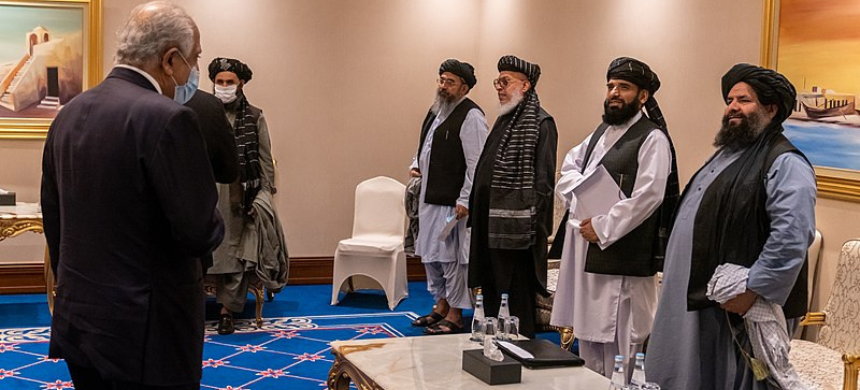Afghan Taliban Officials to Attend COP29 Climate Conference in Azerbaijan
For the first time since the Taliban took power in 2021, Afghan officials will attend a major international event—the COP29 climate summit in Baku, Azerbaijan, scheduled to begin next week. The event will mark one of the highest-profile multilateral meetings that the Taliban administration has attended since its takeover of Afghanistan.
The UN has not granted the Taliban the authority to represent Afghanistan at the General Assembly, and Afghanistan’s government is not formally recognized by the international community, largely due to the Taliban’s restrictions on women’s education and freedom of movement. Despite this, Afghan Foreign Ministry spokesperson Abdul Qahar Balkhi confirmed that officials from Afghanistan’s National Environmental Protection Agency (NEPA) arrived in Azerbaijan to participate in the conference. The Taliban seized control of this agency following their return to power after the withdrawal of US-led forces.
Read More: Afghanistan defeats Sri Lanka to secure their first Emerging T20 Asia Cup title
While the UN Framework Convention on Climate Change (UNFCCC) Bureau of COP has not officially granted Afghanistan’s participation since the Taliban’s takeover, host country Azerbaijan invited the Afghan delegation to COP29 as observers. This allows them to potentially engage in peripheral discussions and hold bilateral meetings, though they are not eligible to participate in full member state proceedings due to the lack of recognition by the UN.
The Taliban’s participation is controversial, as they continue to impose strict rules on women, including banning females over the age of 12 from attending school and mandating the wearing of full face coverings in public. Despite these policies, the Taliban claims to respect women’s rights according to their interpretation of Islamic law.
Afghanistan, heavily reliant on agriculture, is among the nations most affected by climate change, facing flash floods, droughts, and widespread food insecurity. This year, flash floods have killed hundreds, while the country suffers from one of the worst droughts in decades.
Some international advocates argue that the continued isolation of the Taliban is harming the Afghan people, as Afghanistan remains disconnected from the global community despite escalating humanitarian needs. Habib Mayar, deputy general secretary of g7+—an intergovernmental group of conflict-affected nations—stated that Afghanistan is paying a “double price”, as the lack of international engagement exacerbates both the country’s climate crisis and its humanitarian challenges.











